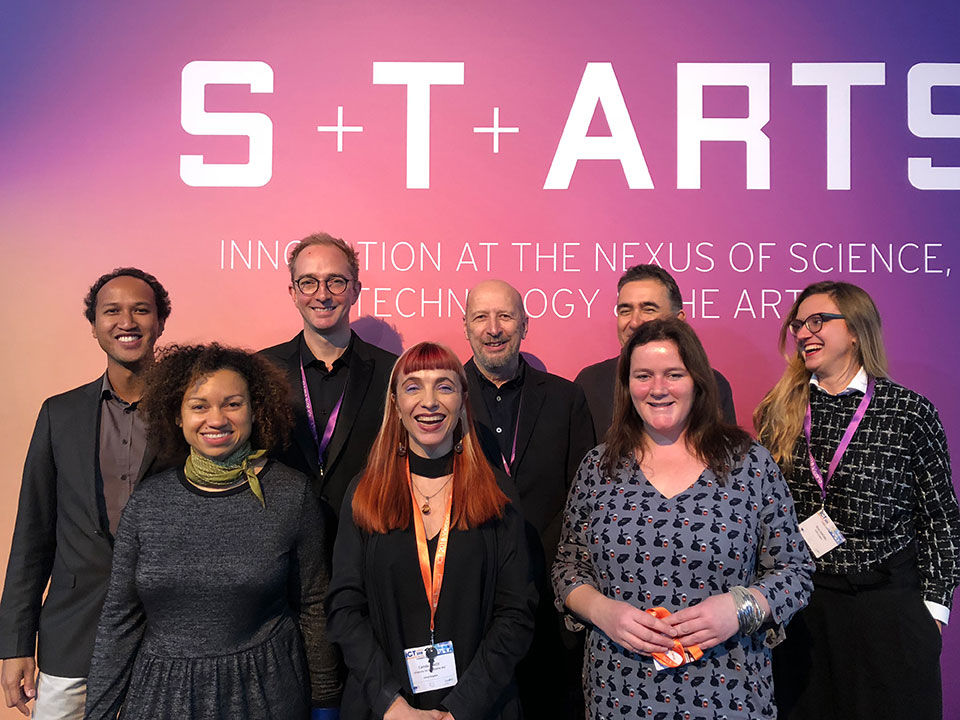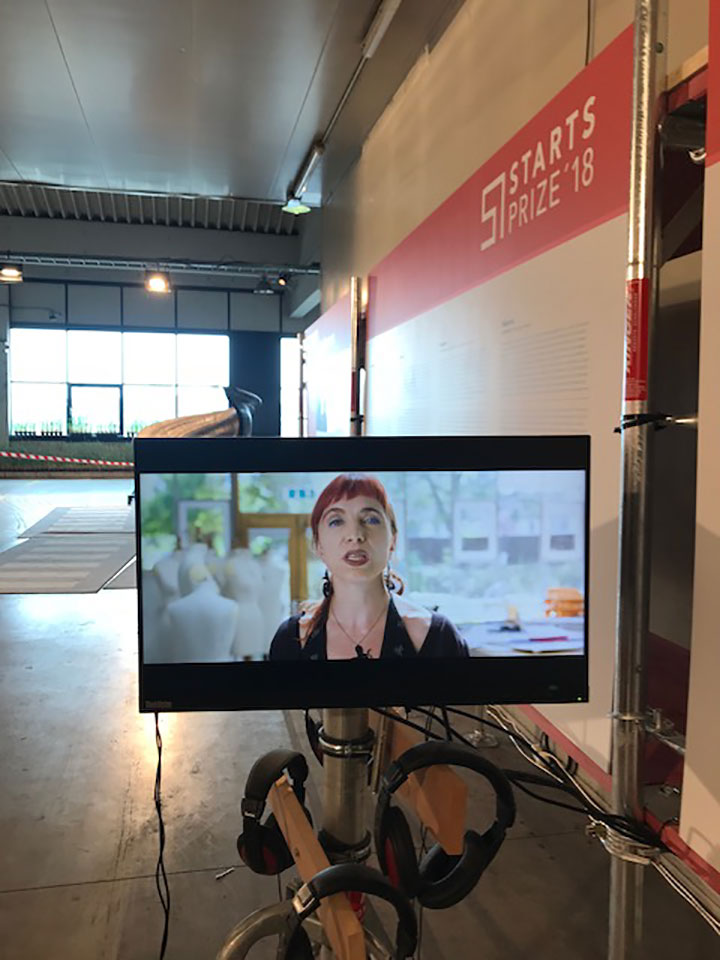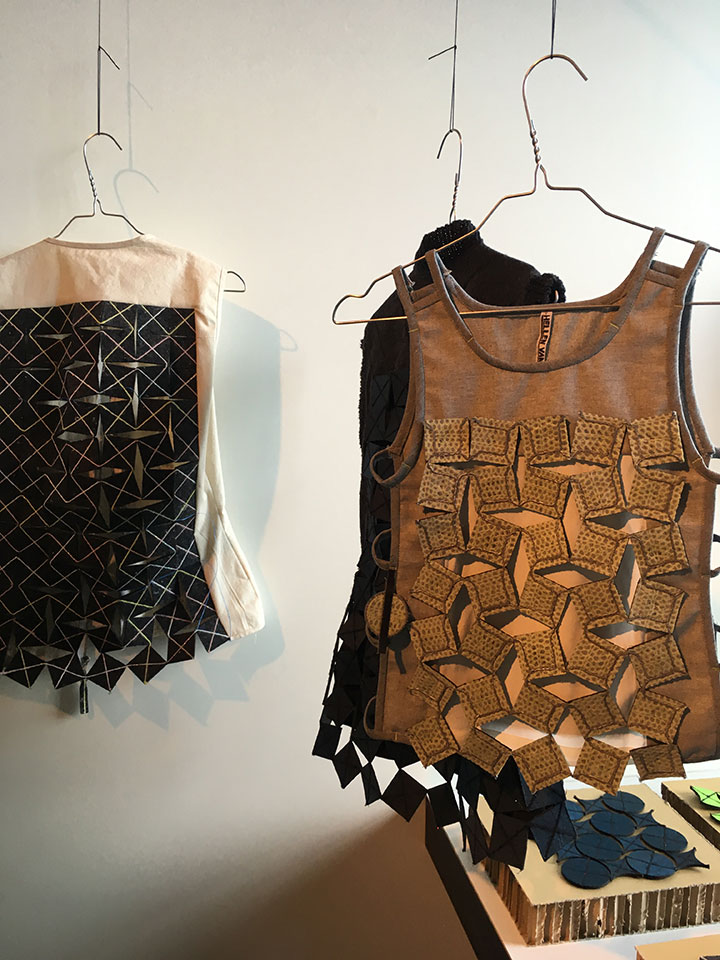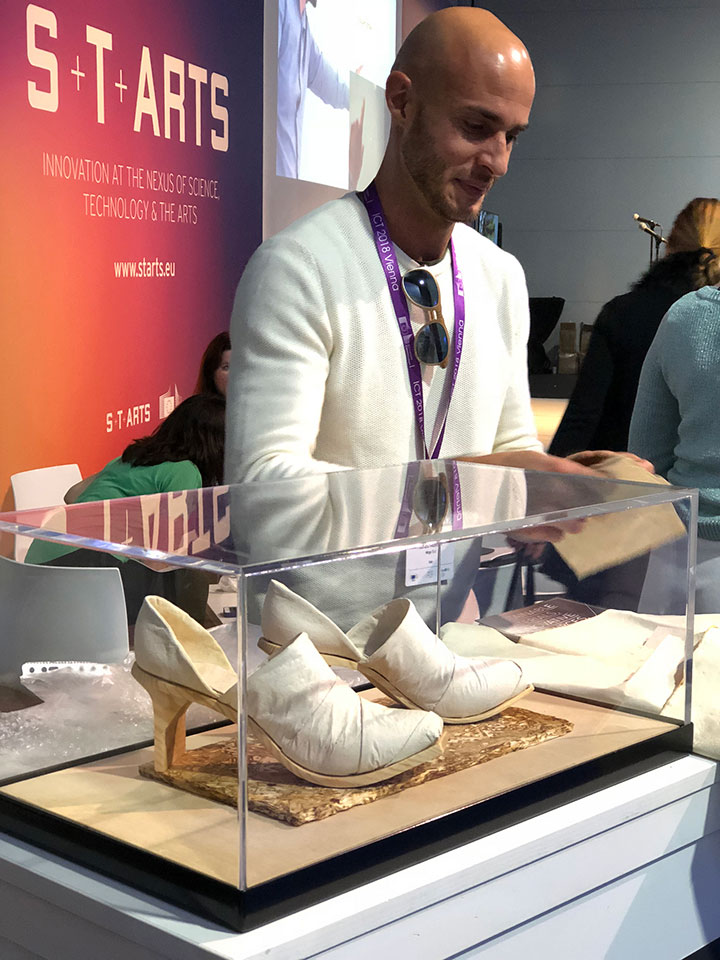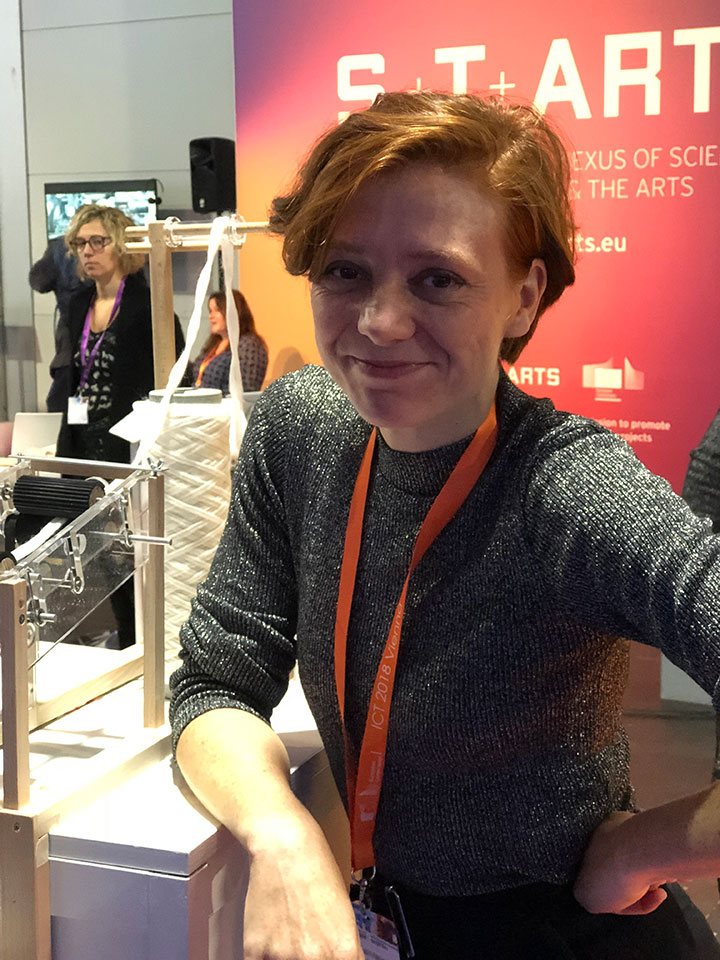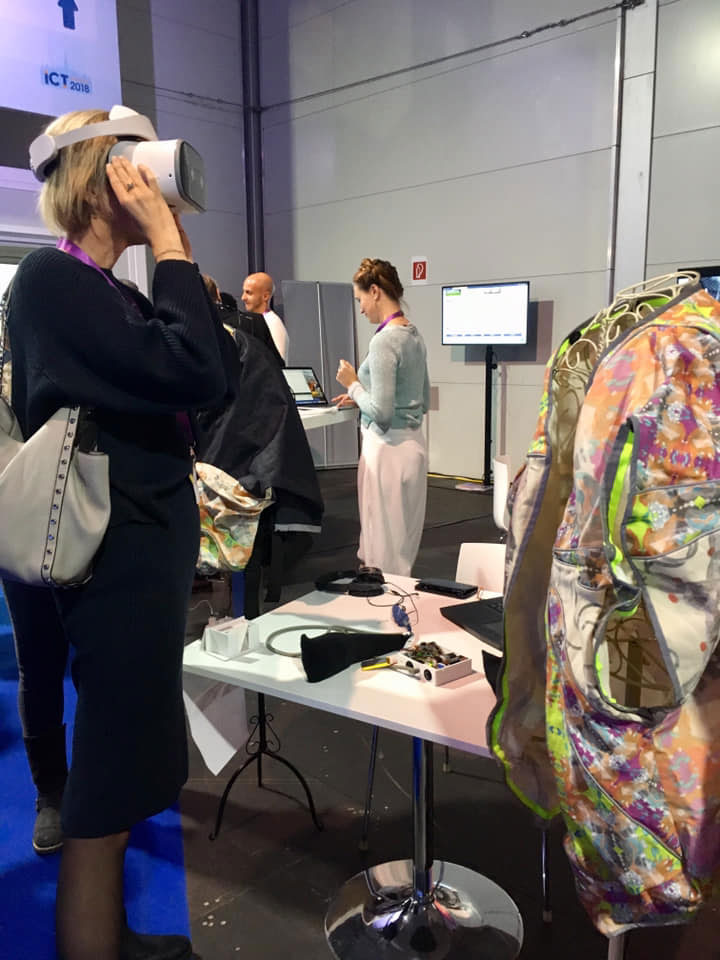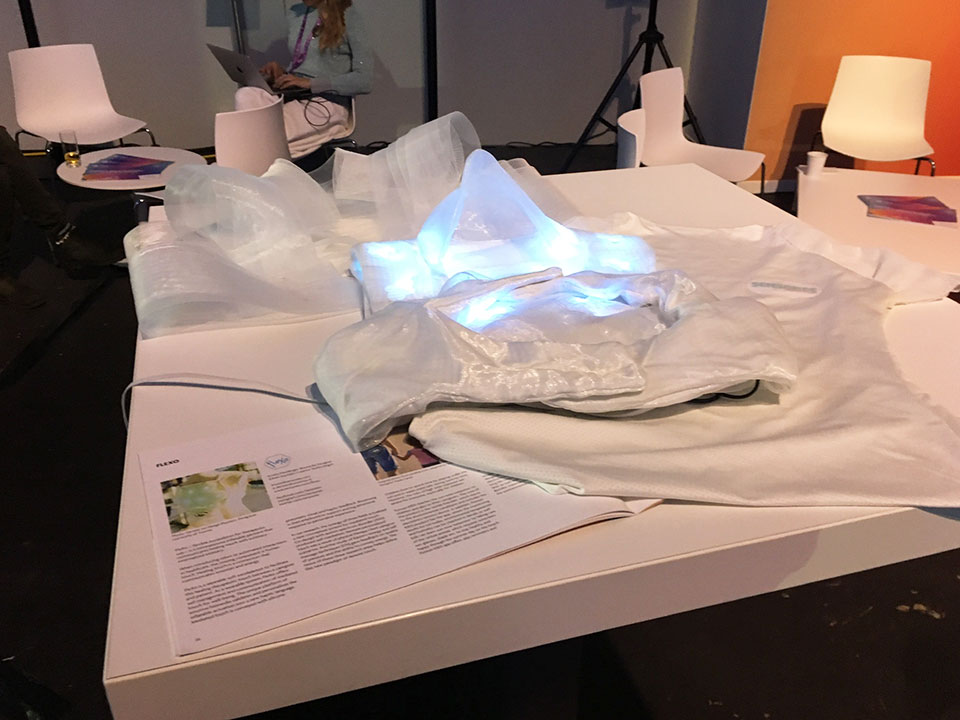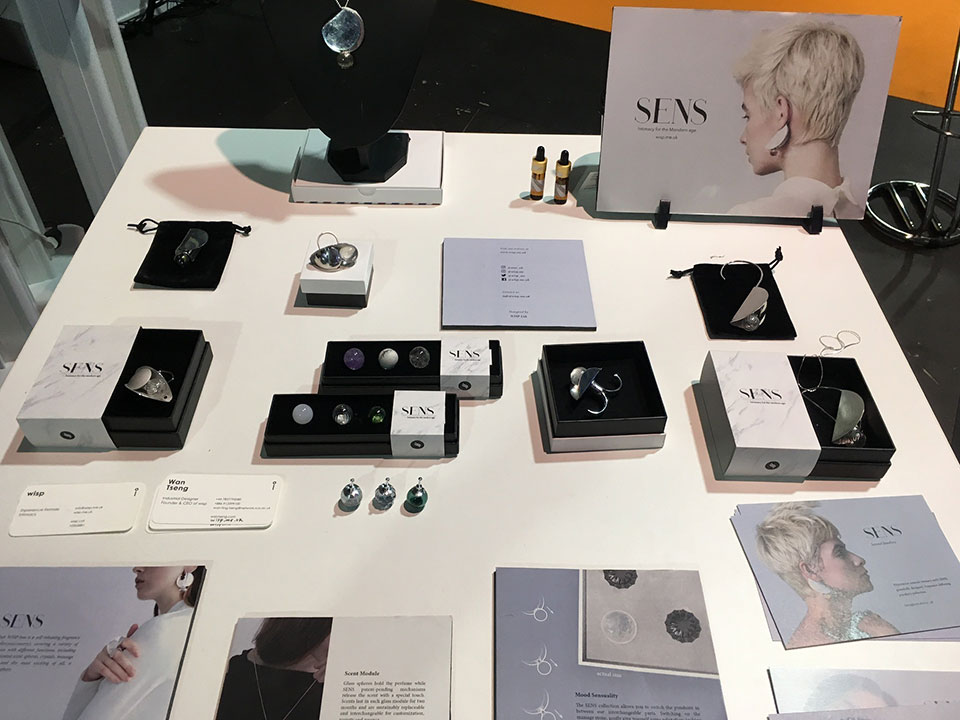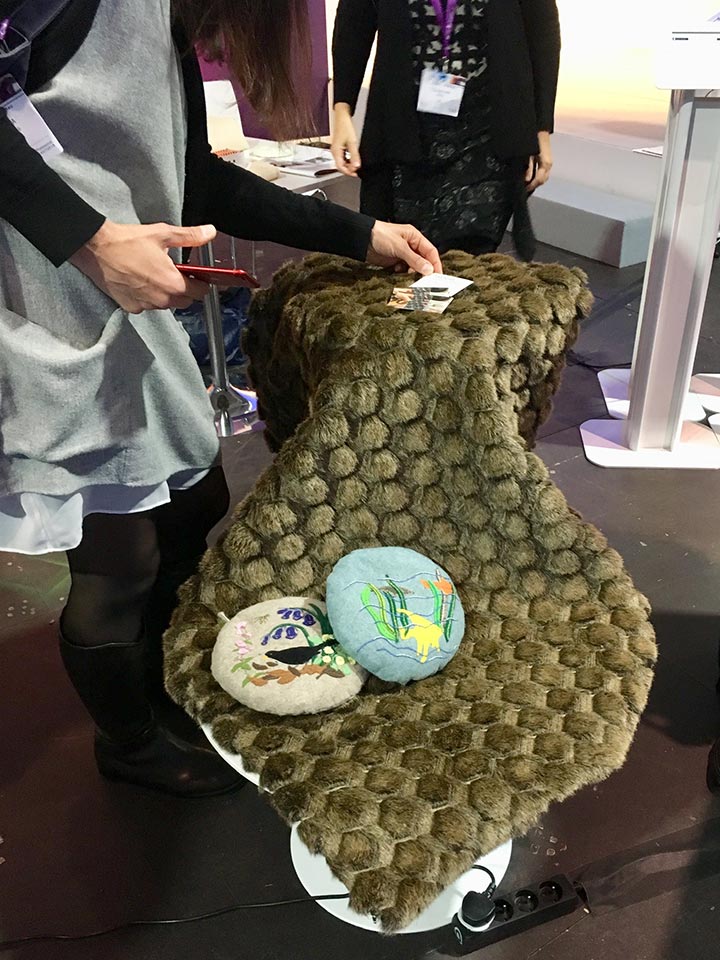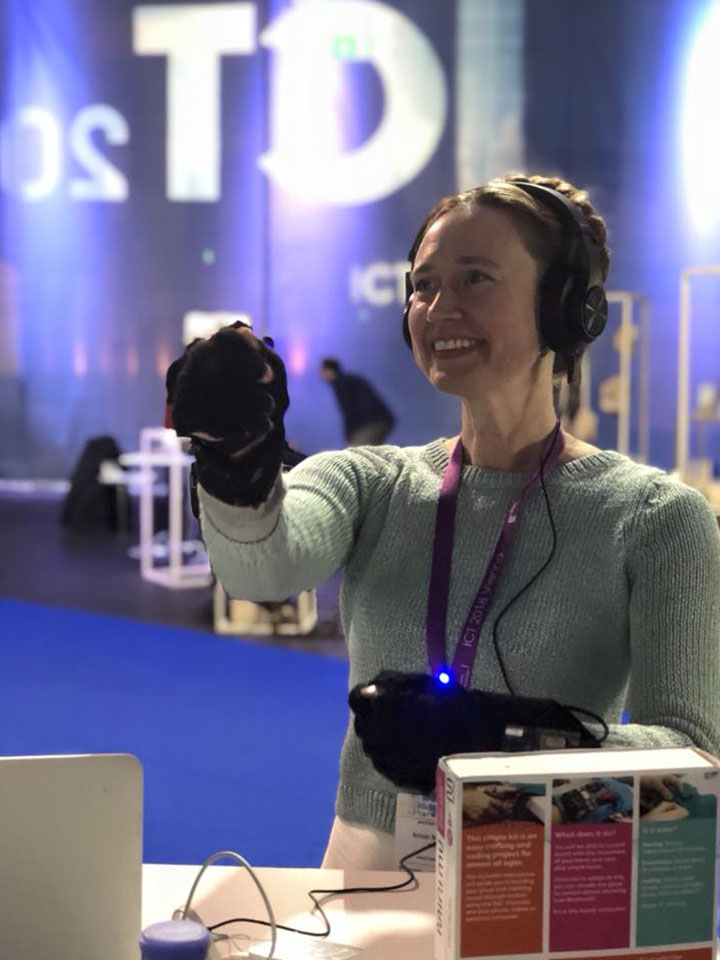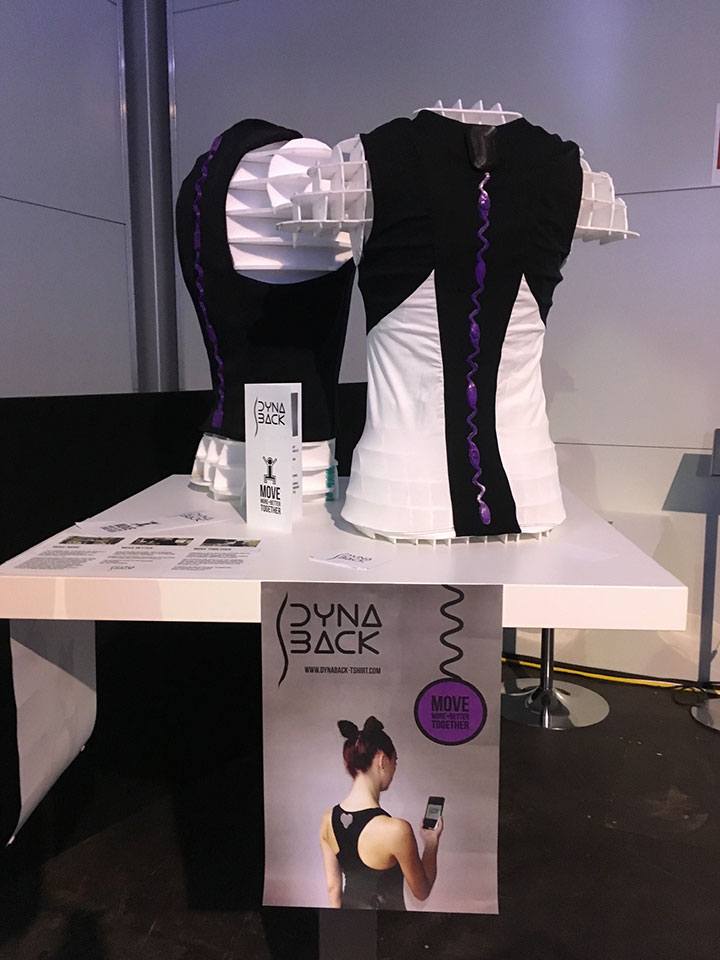> WEAR Sustain
Wearable technologists Engage with Artists for Responsible innovation
WEAR Sustain brings artists and designers to work together with technologists and engineers across Europe, to shift the focus of development in the EU wearable technology and smart textile industries, to address the core issues of ethical, sustainable, aesthetic, environmental and responsible approaches at the research, design and development stages.
> Timeline
January 2017 – April 2019
> Collaborators
- IMEC – Coordinator & Project Management
- UCA – Creative & Critical Lead, Project Initiator
- Queen Mary University – Dissemination & Promotion Lead
- Universitat der Kunste – Prototype Management & Sustainability Lead
- We Connect Data – Mapping & Network Developer
- Blumine SRL – Fashion / Textile & Mapping Partner
- Digital Spaces Living Labs – Technology & Incubation Partner
> Abstract
The goal of WEAR was to develop best practices for enabling, facilitating, and growing the Europe-wide wearable technology, smart and electronic textiles network, developing collaborations and innovations between artists, designers, technologists and engineers to make ethical and sustainable solutions and technologies for a better future.
WEAR Sustain brought artists and technologists together to work in local hubs, in the end funding 46 prototype projects at €50, 000 per project, toward market and technology readiness.
WEAR Aims and Objectives were to:
- Develop a sustainable European network of stakeholders and hubs, to connect and push the boundaries in the design and development of wearables;
- Encourage cross-border and cross-sector collaboration between creative people and technology developers to design and develop wearables;
- Develop a framework within which future prototypes can be made that will become the next generation of what ethical and aesthetic wearables could/should be;
- Lead the emergence of innovative approaches to design, production, manufacturing and business models for wearable technologies;
- Help citizens, entrepreneurs and other stakeholders more aware of the ethical and aesthetic issues in making and use of wearable technologies.
> Partners
- IMEC, Belgium
- UCA / University for the Creative Arts, UK
- Queen Mary University of London, UK
- Universitat der Kunste Berlin, Germany
- We Connect Data, Belgium
- Blumine SRL, Italy
- Digital Spaces Living Labs, Bulgaria
> Budget / Funding
The European Commission Horizon 2020, from Work Programme 2016-17, call ICT-36 Creativity and Sustainability – Innovation Action (H2020-ICT-2016-1) Total funded € 2,998,925 total (80% going to fund 46 smaller prototype projects) – €111062.50 for UCA with Camille Baker as PI for UCA. Seven work packages across seven partners with UCA / Baker leading two of these.
> Outcomes
Knowledge exchange and dissemination events (symposium, industry showcase & exhibition), conference presentations, one book chapter, several journal papers, mini TV documentary, and three 30-second promotional videos.
> Impact
The long-term impacts are still to come but include adding forty-six teams made of art, design and technology professionals, who will take their experience of ethical and sustainable design process into their future practice, pushing suppliers, manufacturers and others within the supply chain and industry as a whole to (ideally) change their own business practicing a large-scale trickle-down effect:
- Society = change in awareness of how the wearable and e-textile products are made.
- Economy = a shift towards more ethical / sustainable products and services sold, transforming the whole supply change toward to better practices.
- Policy = future EC funding focussed on more ethical and sustainable proposals – shift in what is considered a fundable innovation, with ethics and sustainability embedded
> My Role
I was an ambassador for the project and as such interacted with, engaged with and developed relationships with key research users, beneficiaries or audiences collaborators through European Commission ICT events (i.e.ICT 2015 Lisbon – where WEAR collaboration began and potential partners developed), as well as numerous conferences presenting the ICT&Art Connect/FET-Art, WEAR Sustain outcomes.
